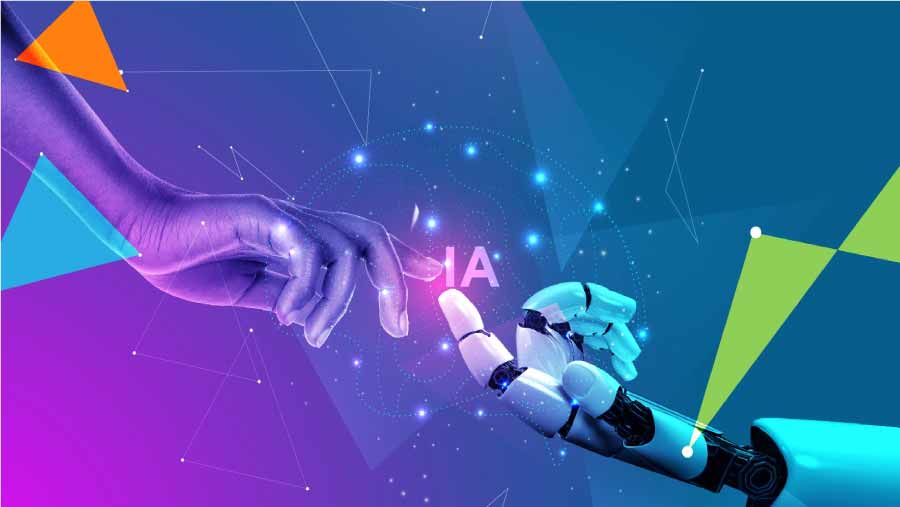Artificial intelligence (AI) is a branch of computer science that seeks to develop algorithms and systems that can perform tasks that normally require human intelligence, such as learning, natural language understanding, reasoning, and decision-making. AI falls into two main categories: weak AI or general-purpose AI, which focuses on solving specific tasks, and strong AI or full-generality AI, which seeks to develop systems that can perform any intellectual task a human can perform.
Origin
The origin of artificial intelligence dates back to the 1950s, when a group of computer scientists and engineers met at Dartmouth College to discuss the possibility of developing intelligent machines. At that meeting, the term “artificial intelligence” was coined and the foundations for the field of research were established.
Since then, AI has seen significant advances in areas such as machine learning, natural language processing, and computer vision. However, there are still significant challenges to overcome in achieving strong or full-blown AI.
Proceeds
Artificial intelligence offers a variety of benefits in different fields, some of which are:
- Task automation: AI makes it possible to automate repetitive and tedious tasks, increasing efficiency and reducing human error.
- Improved decision-making: AI can analyze large amounts of data and provide valuable insights for decision-making in areas such as finance, health and safety.
- Productivity improvement: AI can help improve productivity in different industries, such as manufacturing, agriculture, and services.
- Improving healthcare: AI can help doctors diagnose diseases and plan more effective treatments.
- Improving education: AI can help personalize learning and provide instant feedback to students.
- Improved security: AI can help detect and prevent crimes and security threats.
However, it is important to note that AI is not a magic bullet, and its implementation requires careful consideration of ethical and legal challenges.
Disadvantages
Artificial intelligence also has some disadvantages, some of which are:
- Job losses: Automating tasks using AI can replace human workers, which can have a negative impact on the economy.
- Ethical and legal issues: AI can lead to ethical and legal issues, such as privacy, security, discrimination, and accountability.
- Performance issues: AI can have performance issues if it is not provided with enough training data or if the data is incomplete or misleading.
- Interpretability issues: AI can be difficult to interpret, making it difficult to understand how it makes its decisions and can lead to distrust in users.
- Security issues: AI can be vulnerable to cyberattacks and can misuse user data.
- Bias Issues: AI can replicate existing biases and discriminations in training data, which can lead to unfair decisions.
Overall, it is important to consider these disadvantages when developing and implementing AI systems and ensuring that these issues are addressed through regulations and best practices.
Artificial Intelligence Coverage
Coverage refers to the extent or reach of a technology or system. In the context of artificial intelligence, coverage refers to the applications and areas in which AI is used.
AI has broad coverage in different fields, such as:
- Information and communications technology: used in voice recognition systems, virtual assistants, search systems and social networks.
- Automotive: used in the development of autonomous vehicles.
- Health: Used in early disease detection, diagnosis, and treatment planning.
- Finance: Used in data analysis, fraud detection and automated trading.
- Agriculture: used in the optimization of agricultural production and the detection of pests and diseases.
- Education: Used in learning personalization and automated assessment.
- Security: Used in threat detection and crime prevention.
AI coverage continues to expand as new applications are developed and existing ones are improved.
Future of Artificial Intelligence
The future of artificial intelligence is uncertain, but it is expected to continue to develop and expand into more fields and applications. Some potential trends and developments in the future of AI include:
- Edge AI augmentation: Edge AI refers to the deployment of AI on devices and systems at the edge of the network, rather than in the data center. This allows for greater speed and efficiency in decision-making and a reduction in data transmission costs.
- General AI development: Increasingly general AI systems capable of performing a wide variety of intellectual tasks are expected to be developed.
- Improved interpretability: Techniques are expected to be developed to make AI more interpretable, allowing for a better understanding of how decisions are made and greater trust in users.
- Increased emphasis on ethics: The emphasis on the ethical and legal challenges of AI, including privacy, security, discrimination and accountability, is expected to increase.
- Increased use in education and work: AI is expected to be increasingly used in education and the workplace to improve productivity and efficiency, and to empower workers for the future.
- Improving human-AI interaction: Techniques are expected to be developed to improve interaction between humans and AI systems, including natural language understanding and continuous learning ability.
However, it is important to note that the future of AI will depend on technical, social, legal and ethical factors, and that advances in AI could have unpredictable consequences.


